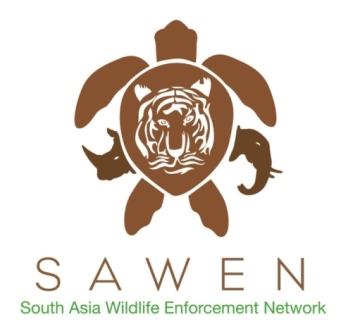Fourth Training to NID officials on Wildlife law enforcement

For the fourth time, South Asia Wildlife Enforcement Network (SAWEN) organized training on wildlife law enforcement to the officials of National Investigation Department (NID) Nepal from 24 to 27 September 2023 in Kathmandu, Nepal. The major objective of the training was to make acquaintance on the ranges of aspects including biodiversity conservation, illegal wildlife trade, wildlife crime control efforts, institutional arrangements and more.
The four days training was commenced with a brief inaugural session in presence of Dr. Sindhu Prasad Dhungana, chief enforcement coordinator of SAWEN and high level official from NID Nepal. Inaugurating the program, Dr. Dhungana reflected back on the previous training programs and increased awareness among the NID officials. He highlighted the current trend, nature and practices of IWT in Nepal linking along with regional wildlife crime scenario. Dr. Dhungana recalled the involvement of forest dependent people in the first hand wildlife crime that also might have been fueled due to population change in the vicinity of protected areas. He explained the participants that biodiversity conservation is for all of us and primal to know that wildlife holds value when they are alive. Higher official from NID pointed out for regularity of capacity building activities to NID officials in this important subject matter and encouraged the participants for active participation.
Twenty five participants from the Kathmandu Valley and fringe districts participated in the training. The course comprised biodiversity conservation in and outside of protected areas; institutional mechanism and interagency cooperation in wildlife crime control; global wildlife crime scenario and controlling initiatives; wildlife crime in Nepal along with prevalent modus operendi; wildlife parts and products identification; efforts of Nepal Army, Nepal Police, NID, INTERPOL; interrelationship between money laundering and wildlife crime and so on. Active participation of the trainees and willingness to know additional subject matter were encouraging factors during the training. Review and feedback sessions were useful to retrospect the holistic parts of the training including subject delivery, presentation, coverage and overall management.
The program was concluded with a short closing session in presence of higher officials of NID and Mr. Ajay Karki, SAWEN Principal Focal Person of Nepal. Senior official from NID reassured the commitment to work profoundly on combating wildlife crime in different levels. Mr. Karki highlighted the importance of information collection from the field for informed decision making to dismantle complex network of wildlife crime groups. Mr. Karki congratulated the trainees and wished to implement the garnered knowledge in due course of time. Participants received 'Certification of Participation' at the end of the training program.


